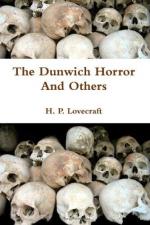|
This section contains 232 words (approx. 1 page at 300 words per page) |

|
Much has been made by critics of Lovecraft's affection for eighteenthcentury manners and of his relationship to the early nineteenth-century author Edgar Allan Poe. One should distinguish between his admiration of the gentlemanly manners of the eighteenth century and his attitude toward the Gothic tales of the period. For instance, in Supernatural Horror in Literature, he says of Horace Walpole's Castle of Otranto (1764), the progenitor of the Gothic horror story: "The story — tedious, artificial, and melodramatic — is further impaired by a brisk and prosaic style whose urbane sprightliness nowhere permits the creation of a truly weird atmosphere." Lovecraft objected to the fantasies of Wilkie Collins, H. Rider Haggard, and H. G. Wells for much the same reasons: He objected to their subordinating emotional content to overintellectualization.
On the other hand, Lovecraft admired Poe's "spectres" because they had a "convincing malignity possessed by none of...
|
This section contains 232 words (approx. 1 page at 300 words per page) |

|




